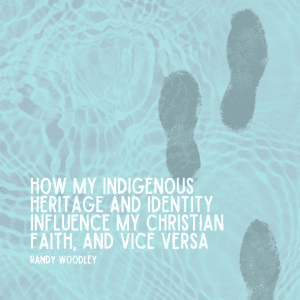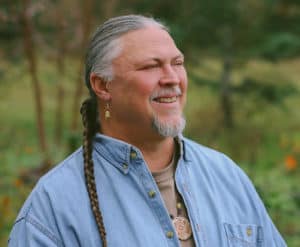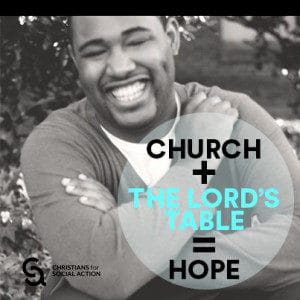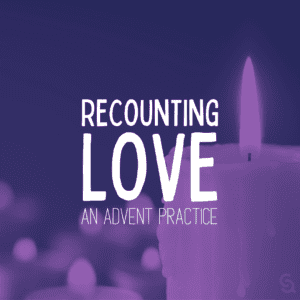 Editor’s note: This article kicks off a month of focusing on Identity and the stories and histories that we’ve laid claim to that have shaped us. Throughout the month, we invite others to share stories of their own identities. We do so in the hopes that we would better understand ours and have greater care and compassion for those who don’t share the same identity. In the end, however, we have our strongest identity in our togetherness—as beloved children of God.
Editor’s note: This article kicks off a month of focusing on Identity and the stories and histories that we’ve laid claim to that have shaped us. Throughout the month, we invite others to share stories of their own identities. We do so in the hopes that we would better understand ours and have greater care and compassion for those who don’t share the same identity. In the end, however, we have our strongest identity in our togetherness—as beloved children of God.
I make a sharp distinction between Christianity and following Jesus.
Christianity has, at best, failed miserably in delivering good news to Indigenous people. I understood this concern at a young age, and I have always sought to find a way to enjoy and share my personal love for Jesus as something that lifts up our common values in a non-oppressive, decolonial way.
This took a while to learn.
I spent many years serving among various Native communities, including seven years pastoring a Native church. The thing that energized my own relationship of an informed understanding of Jesus was how much closer our Indigenous values were than the popular theology and values in Western Christianity. I realized some time ago that I am as much of a missionary to the Church in the West as I am among our Indigenous people. A better cultural and theologically informed view of Jesus can bring hope and healing to both Indigenous and non-Indigenous peoples.
I won’t say I don’t still struggle. I continue to understand more fully that the deep trauma in Indian country was first inflicted by Empire and Empire-driven mission. This caused Post-Colonial Stress Syndrome, and then led to the subsidiaries of the effects of colonization through PTSD. That is, the Church and State wanted to cripple and demoralize Indigenous peoples by forcing them to assimilate to a foreign culture and become dependent upon them for their every need.
Whether through the Christian Doctrine of Discovery, Residential Boarding Schools, the duplicity of Christian Indian Agents who worked for Native “betterment,” or just those little Native American churches sprinkled throughout the land that I call a poor imitation of a bad model, all continue to reinforce the same erroneous spirit and values of American society—values that are bad for everyone, but lead Indigenous people to a road of devastation, often through self-destruction.
I noticed a strange irony present when comparing poverty and wealth among the dominant White European-based cultures of Canada and the U.S. to the present state of Indigenous peoples in North America. Both societies base their wealth on what comes from the land, but they hold different values concerning the distribution of those resources. Sitting Bull was reported to say, “The White man knows how to make everything, but he does not know how to distribute it.”
Wealth among First Nations has always come from the abundance of what could be hunted, grown, harvested, or gathered from the abundance of the land. The glaring irony is that the newcomers stole the land and subjugated the host people, making apparent attempts to assimilate them into a capitalistic system, with meager land and resultant resources from that land.
They demoralized us, stole all our capital, and then said, “Now become good capitalists!” Then they belittled and ridiculed Indians when they did not fit well into their system.
But there is one major flaw in those expectations: Indigenous values are too much like Jesus’ and those found in the early church.
Foremost among Indigenous values is the understanding of the inherent goodness of the land, along with the traditions and lifeways that have been lived upon the land. In other words, life in the old days, and in the old ways, had prescribed sets of remedies structured in society for maladies such as temporary poverty. Those structures and mechanisms of healing had been time-tested for multiple generations.
The European colonizing and missionizing disruption to Indigenous constructs of well-being inserted its values, ideas, and hopes in the midst of Native America, creating a dependency that has been a cruel taskmaster. Although relief from its intended marginalization may provide some temporary comfort, the Indigenous peoples of the U.S. and Canada are not necessarily seeking “the American Dream” today.
Doctoral research and well-being
Perhaps the greatest change in my relationship to Jesus took place during my doctoral research, which led to a PhD in Intercultural Studies. I was particularly concerned about Native American values and mission.
In my doctoral research I set out to explore the possibility that the core values of most Native North Americans might be centered in Indigenous concepts of well-being. For this exploration to occur, I needed to identify the core Indigenous values of various tribes found within their own well-being concepts and then attempt to determine whether or not the core Indigenous values could be synthesized easily into one broad concept.
Given that Western models of mission among Native Americans have failed abysmally, and that these colonial practices have devastated Native communities, my research sought a better way of pursuing mission among Native Americans by asking several important preliminary questions:
- Do Native Americans have a generally shared set of values that could guide the construction of new models for mission in North American Native communities, and, if so, to what degree are these values shared among Native American communities?
- What resources (particularly values) are available within the Native American communities themselves for developing appropriate models of mission?
- Could such resources be developed into authentic, integral mission models?
Understanding the values themselves emerged from conversations with elders/spiritual leaders who participated in extensive interviews and a survey of 100 Native Americans from all regions of the United States and most in Canada.
I was able to establish among Native Americans a widely-spread construct that I generally refer to as the “Harmony Way.” I was then able to isolate and examine 10 commonly-held core values that exist within the framework of the Native American Harmony Way and also the framework of ancient biblical ideas of Shalom.
Jesus lived and taught a realm of shalom, making this ancient system, renewed by Him, the core of the gospel. Indigenous people like my wife and myself, who understand this, can freely love Jesus, hate the Christian past, and live by the core values that both Jesus and our Native people cherish.
As a Native man and follower of Jesus, I must raise fundamental questions about past and current approaches to Native American mission and about the dangers of formulating mission models that are not based on Native American values and not within the framework of Native American concepts of “well-being.”
Hopefully, my research, along with my wife’s and my many years in mission and our current co-leadership at Eloheh Indigenous Center for Earth Justice, is contributing to the practice of disrupting systems of missionary oppression that hold poor theologies and Western values. We hope to encourage the formation of alliances and to promote models of service that are empowering and liberating for all those involved, including ourselves.
 Rev. Dr. Randy Woodley is an author, activist, farmer, public intellectual, and wisdom-keeper who addresses a variety of issues concerning American culture. He serves as Distinguished Professor of Faith and Culture at George Fox University/Portland Seminary and Co-sustainer of Eloheh Indigenous Center for Earth Justice. Randy was raised near Detroit, MI, and is a Cherokee descendent recognized by the United Keetoowah Band. His books include Shalom and the Community of Creation, Living in Color, Decolonizing Evangelicalism, The Harmony Tree, and two forthcoming in 2022: Becoming Rooted and Indigenous Theology and the Western Worldview.
Rev. Dr. Randy Woodley is an author, activist, farmer, public intellectual, and wisdom-keeper who addresses a variety of issues concerning American culture. He serves as Distinguished Professor of Faith and Culture at George Fox University/Portland Seminary and Co-sustainer of Eloheh Indigenous Center for Earth Justice. Randy was raised near Detroit, MI, and is a Cherokee descendent recognized by the United Keetoowah Band. His books include Shalom and the Community of Creation, Living in Color, Decolonizing Evangelicalism, The Harmony Tree, and two forthcoming in 2022: Becoming Rooted and Indigenous Theology and the Western Worldview.


